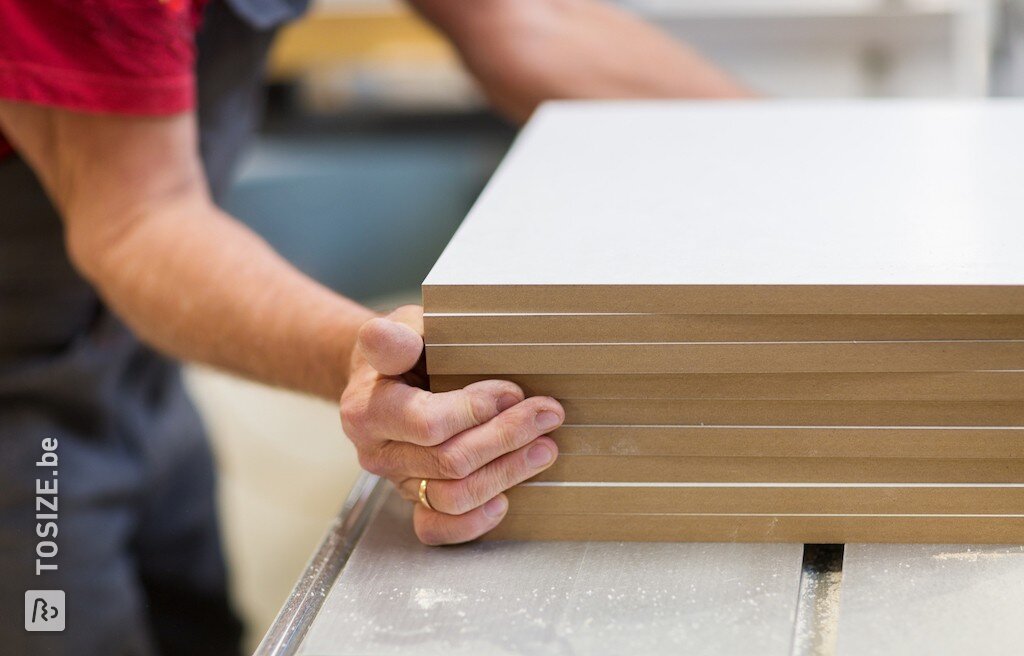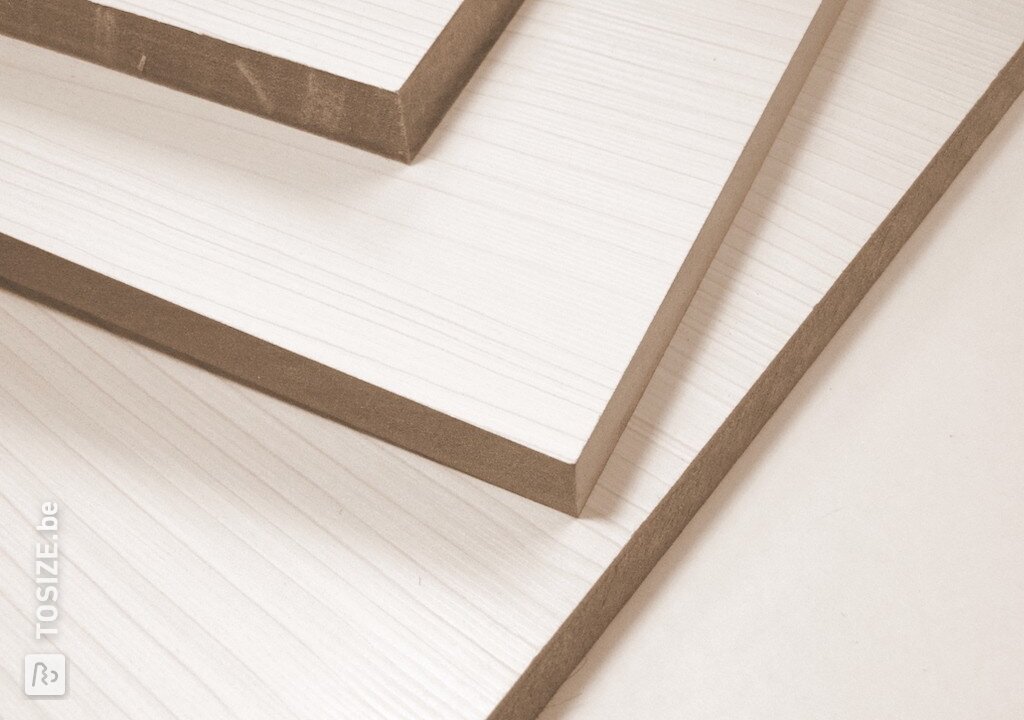- TOSIZE.be
Laminated MDF, what is it?
Laminated MDF, what is it?
MDF is a versatile board material. It consists of small wood fibres that are bound together by resin. It is then pressed under high pressure and temperature into a board. Boards made in this way are also called fibre boards. The great advantage of MDF is that it is easy to process, for example, the wood does not splinter. It is therefore a popular board material for making furniture. A number of MDF variants have a laminated top and bottom layer. What this means and what it is used for is explained below.
What is laminated MDF?
Laminated MDF is a variant of MDF with a top layer laminated over it. This can be done for the top and bottom as well as both sides. The advantages depend on the specifications of the laminated top layer.
MDF Paint Carrier
A popular variant is MDF with a lacquer-carrying film, also called MDF Paint Carrier. This foil is carried out in an even colour (usually white) and ensures that you do not need to prime the board. So you can start painting or lacquering right away!

MDF Paint Carrier V313
There is also an MDF paint carrier variant that is made of moisture-resistant MDF. Standard MDF does not have good moisture-resistance properties and will expand in humid conditions. For this reason, MDF Moisture-Resistant V313 has been developed. Through the use of special moisture-resistant glue and pressing under higher pressure, moisture-resistant MDF will not expand in humid conditions. This MDF is also referred to as 'V313'. Moisture-resistant MDF with a lacquer-carrying film is therefore also referred to as 'MDF Lacquer Carrying V313'.
View here MDF Moistureproof V313
Veneered MDF
If you want to create a project with a natural look, veneered MDF is a good option. Veneered MDF has a veneer layer on one or two sides. A veneer layer is a thin layer of solid wood that can be applied to board material. This way, you can obtain an MDF board with a natural wood look!

What to look out for with laminated MDF
Although laminated MDF saves a lot of time during processing, it is still important to pay attention to a few points.
Finishing top layers
For veneered MDF and MDF Paint Carrier, the top layers must still be finished. Veneered MDF has a solid wood veneer layer which, without protection, may start to work. It is therefore important to finish the material. This can be done with a clear varnish, so that the wood veneer remains beautiful and visible. At MDF Lakdraag we often hear that people think they don't need to finish it. It is true that the top layer protects the MDF, but it is not intended as a visible work. Therefore, it is not nice and evenly white, as many people think. Varnishing the material in a colour (or white) is therefore still necessary. Are you looking for sheet material with a white top layer that you do not need to finish? Then Particleboard Melamine-Treated White or Furniture panel might be a better option!
Ends
The ends of MDF have a strong absorbing effect, even more so than the top and bottom. In laminated MDF, these end edges are not yet protected and will therefore have to be treated to strengthen the moisture-resistant properties. You can do this with an edge sealer. You can read how best to do this in our Handy tip on the ends of MDF.
Drill and screw holes
Drill and screw holes are not protected, just like the head edges. Should drill or screw holes ultimately remain open in the end result, it is therefore important that they are also treated with an edge sealer. Unused holes can also be filled with putty. In this way, the holes are no longer visible, but it is nice to paint the material afterwards.
Have you received enough information and do you want to start your job with laminated MDF? Then take a look in our webshop! We offer different variants of laminated MDF in various thicknesses. If you have been able to make a choice, you can then have your chosen MDF sawn to size by us. Our saw specialists will get to work for you straight away. Once all the sawing has been done, we can have it delivered to your home.